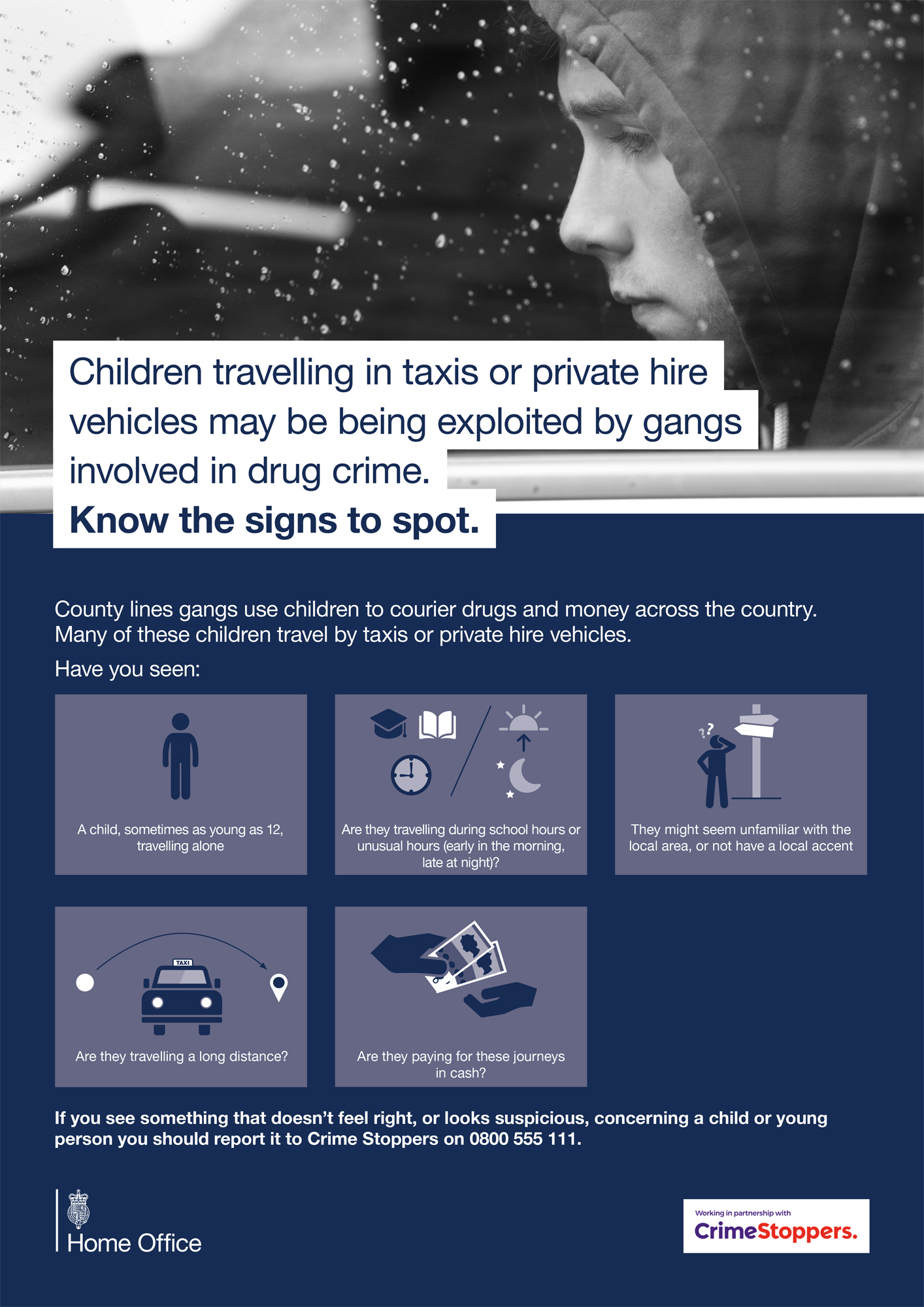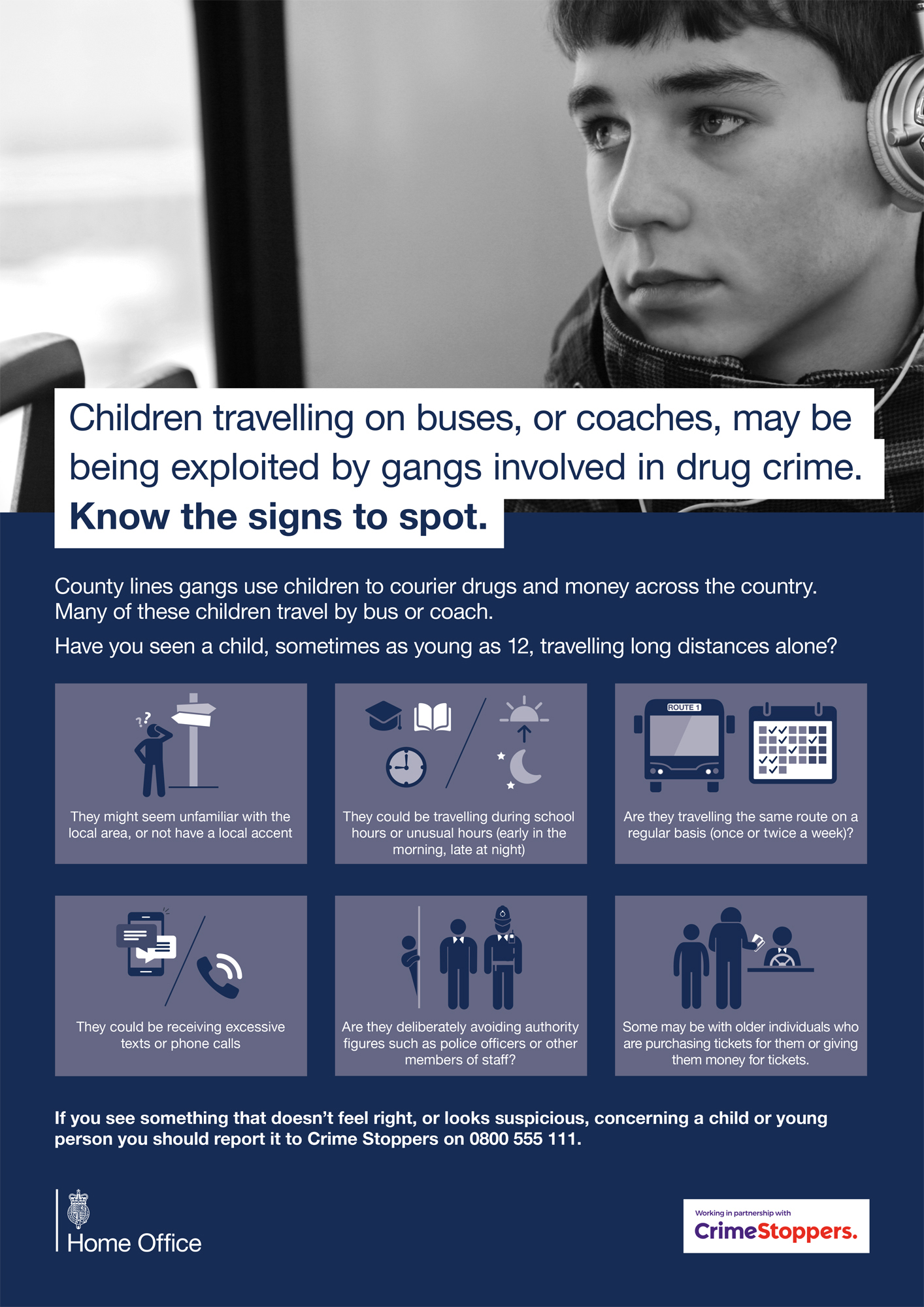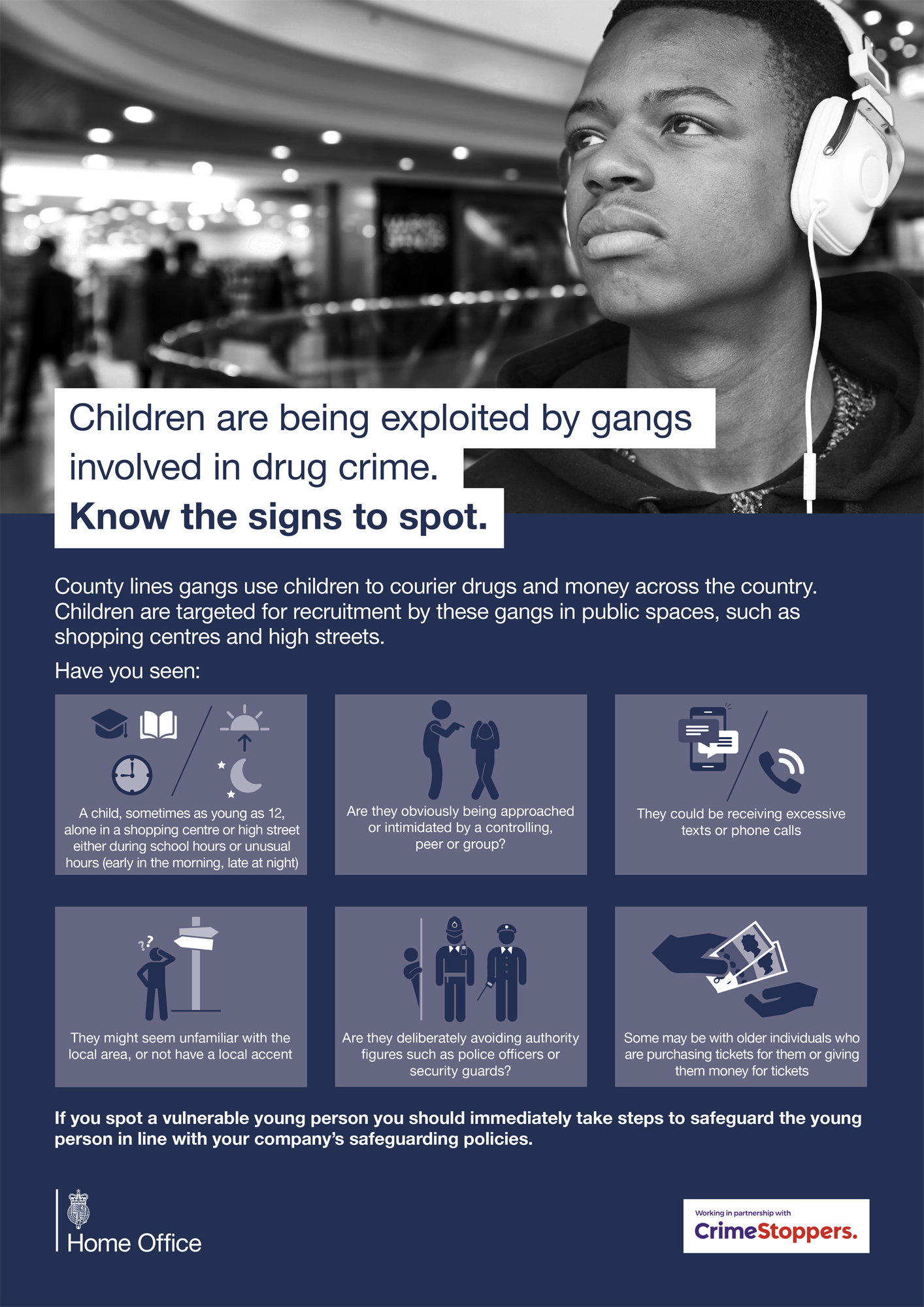Security guards, taxi drivers and train staff are being given tips on how to spot children being used as mules by drug gangs.
The Home Office has distributed posters highlighting possible signs that youngsters are being exploited by criminal networks.
The campaign is focused on the drug distribution model known as “county lines”.

They deploy children and vulnerable people as couriers to move drugs and cash between the new market and their urban hub.
Posters have been designed to flag up possible warning signs for private security, taxi and vehicle hire staff as well as train, bus and coach workers.
Employees are urged to look out for children as young as 12 who are alone in a shopping centre or high street or travelling during school hours, late at night or early in the morning.
“They might seem unfamiliar with the local area, or not have a local accent,” the posters say.

“Are they deliberately avoiding authority figures such as police officers or security guards?”
The campaign literature adds: “If you see something that doesn’t feel right, or looks suspicious, concerning a child or young person you should report it to Crime Stoppers on 0800 555 111.”
Authorities have raised the alarm over how city gangs prey on children and vulnerable adults to spread their lucrative operations into rural areas.
Experts estimate that the tactics can yield as much as £5,000 a day in revenue.
Analysis by the National Crime Agency (NCA) found that on a “conservative estimate” there are at least 720 county lines across England and Wales.

“They focus on those who are particularly vulnerable or at a crisis point in their lives. They are groomed and enticed by gang members to work within the drugs distribution network.”
The majority of children recruited by county lines networks are aged 15-17 and male, the report said, adding: “Anecdotal evidence suggests children are often used for supply and to run drugs/money between the urban hub and rural marketplace.
“This is because they are less likely to be known to police and more likely to receive lenient sentences if caught.”
The campaign posters were released as the Home Office finalises plans for a wide-ranging strategy that will set out measures to bear down on serious violence including knife and gun crime.






